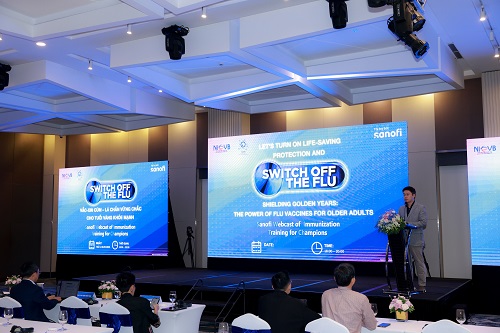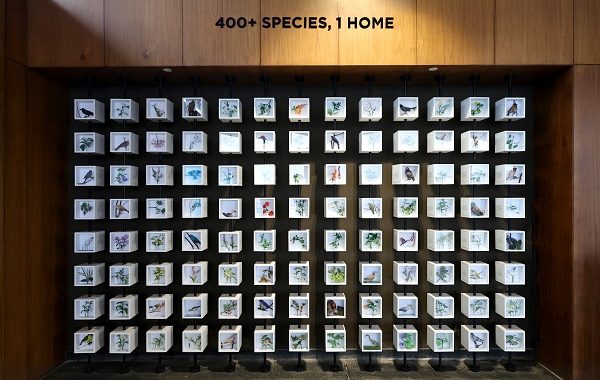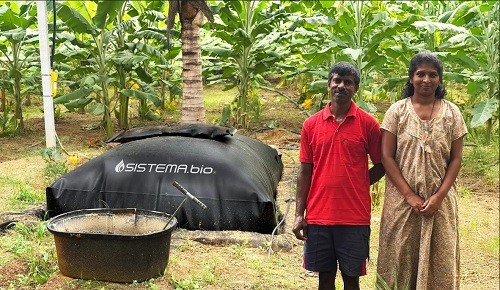Manufacturing of tribal products and skill upgradation of tribal artisans under instructional support

Manufacturing of tribal products and skill upgradation of tribal artisans under instructional support for development and marketing of tribal product/produce
The Ministry of Tribal Affairs is implementing a scheme ‘Institutional Support for Development and Marketing of Tribal Product/Produce’ wherein Grants-in-aid are provided to State Tribal Development Cooperative Corporations (STDCCs) and Tribal Cooperative Marketing Development Federation of India Ltd. (TRIFED). The objective of the scheme is to create institutions to support marketing and development of tribal products, including training and skill up-gradation of tribal Artisans, Craftsmen, MFP gatherers and creation of supply chain infrastructure etc. Under the scheme, TRIFED provides marketing platform for tribal products through its network of 73 Tribes India outlets and 33 consignment counters and 15 Franchise outlets in State Emporiums located across the country along with other e-commerce platforms. TRIFED also organizes National Tribal Festival “Aadi Mahotsav” for development of traditional art and culture of tribal population which includes food and handicraft items. The funds released under the scheme during last three financial years are as under:
(Amount in lakh rupees)
| Scheme | 2017-18 | 2018-19 | 2019-20 |
| Institutional Support | 4495.00 | 7250.00 | 12850.00 |
Ministry of Tribal Affairs provides funds to the State Governments based on their proposals for undertaking various livelihood activities including agriculture, horticulture, animal husbandry, fisheries and other non-farm based livelihood activities etc. under the schemes ‘Special Central Assistance to Tribal Sub-Scheme (SCA to TSS)’, ‘Development of Particularly Vulnerable Tribal Groups (PVTGs)’ and ‘Grants under Article 275(1)’. During last three years, about 1000 different projects were sanctioned to various State Governments amounting to Rs. 1874.90 crore. Further, under these schemes, funds were sanctioned to the State Governments for the projects related to irrigation and watershed management and drinking water as below:
| Year | Irrigation & Watershed Management | Drinking Water & Piped Water Supply | ||
| No. of Projects | Funds Approved | No. of Projects | Funds Approved | |
| 2017-18 | 32 | 107.50 | 15 | 73.10 |
| 2018-19 | 44 | 137.70 | 38 | 159.30 |
| 2019-20 | 32 | 101.10 | 21 | 63.30 |
| Total | 108 | 346.30 | 74 | 295.70 |
Besides, Ministry of Tribal Affairs has undertaken following initiatives to resolve the issues related to water and livelihood in tribal areas as elucidated below:
- Ministry of Tribal Affairs in collaboration with Tata Trust has undertaken a multi-pronged initiative to promote sustainable livelihoods in the villages of the Ladakh region including Sheep Rearing, packaging of Apricot, vegetables and fruits. This initiative envisages to largely focus on productivity enhancing, harvesting, post-harvesting, processing and marketing of various products belonging to Ladakh region in 31 villages of Sham Valley, Changthan and Tharu Valley.
- MoTA has partnered with SSISAT (Sri Sri Institute of Agricultural Sciences and Technology), connected to the Art of Living Foundation, to promote sustainable agriculture. This is a 3 year-long project, which envisages to impart Organic Farming Training to 10,000 farmers in the Tribal district of Aurangabad, Maharashtra.
- Under the scheme of Minimum Support Price for Minor Forest Produce (MSP for MFP), TRIFED also implements the initiative of Van DhanVikasKendras (VDVKs), launched in 2018-19, wherein tribal community owned Minor Forest Produce centric multi-purpose Kendras are set up in predominantly tribal districts which act as common facility centres for procurement cum value addition to locally available MFPs. State-wise list of VDVKs sanctioned by TRIFED is at given below:
- Ministry of Tribal Affairs in partnership with the Students’ Educational and Cultural Movement of Ladakh (SECMOL) under the Financial Assistance for Support to Centres of Excellence (CoE) scheme established 25 Ice Stupas during 2019-20, that stored water with more than 60 million litres capacity.
- The ‘1000 Springs Initiative’ by Ministry of Tribal Affairs and UNDP demonstrated a localized solution by harnessing the potential of perennial springs to meet the water needs of remote tribal habitations by converting them from source to resource. 408 springs across 77 habitations/villages in 8 districts (Ganjam, Gajapati, Jajpur, Kalahandi, Kandhmal, Keonjhar, Mayurbhanj, Rayagada) have been mapped to create an online Spring Atlas thespringsportal.org. Community led Spring-based water infrastructure has been demonstrated through convergence with MGNREGA to provide safe and adequate water for drinking, domestic and livelihood. A project has been sanctioned to Government of Odisha under the scheme ‘Support to Tribal Research Institute’ for mapping the springs in the districts of Odisha as mentioned below:
| Sl. No. | Name of TSP Districts with LGD Code | Number of TSP Block | No. of villages |
| 1 | Mayurbhanj (LGD: 365) | 26 | 5383 |
| 2 | Sundargarh (LGD: 373) | 17 | 3623 |
| 3 | Koraput (LGD: 363) | 14 | 2973 |
| 4 | Malkangiri (LGD: 364) | 7 | 1509 |
| 5. | Rayagada (LGD: 370) | 11 | 2202 |
| Total | 5 | 75 | 15690 |
State wise number of Van DhanKendras sanctioned and beneficiaries’ details
| Sl. No. | State | Number of VDVKs | Number of beneficiaries |
| 1 | Andhra Pradesh | 263 | 78818 |
| 2 | Assam | 128 | 38530 |
| 3 | Bihar | 8 | 1630 |
| 4 | Chhattisgarh | 139 | 41700 |
| 5 | Goa | 10 | 3000 |
| 6 | Gujarat | 116 | 34424 |
| 7 | Ladakh (UT) | 10 | 3000 |
| 8 | Jharkhand | 39 | 11601 |
| 9 | Karnataka | 19 | 5700 |
| 10 | Kerala | 13 | 3900 |
| 11 | Madhya Pradesh | 86 | 25800 |
| 12 | Maharashtra | 264 | 79350 |
| 13 | Manipur | 100 | 30194 |
| 14 | Mizoram | 159 | 46168 |
| 15 | Nagaland | 92 | 27600 |
| 16 | Odisha | 156 | 45578 |
| 17 | Rajasthan | 27 | 8190 |
| 18 | Sikkim | 80 | 23800 |
| 19 | Tamil Nadu | 7 | 2100 |
| 20 | Telangana | 17 | 5100 |
| 21 | Tripura | 27 | 7429 |
| 22 | Uttar Pradesh | 5 | 1238 |
| 23 | Uttarakhand | 5 | 1505 |
| Total | 1770 | 526355 | |
The naturalistic wisdom is an integral part of tribal cultural heritage including use of locally available plants and herbs as traditional medicine. The Ministry has granted projects under the scheme ‘Tribal Festival, Research Information and Mass Education’ for conducting research on system of medicine and the medicinal plants for conservation of traditional knowledge as given below:
Details of projects under the scheme ‘Tribal Festival, Research Information and Mass Education’ for conducting research on system of medicine and the medicinal plants for conservation of this traditional knowledge
| Sl. No. | Name of the Centre of Excellence |
Project details |
|
| 1 | National Institute of pharmaceutical Education and Research (NIPER), Guwahati | a) Documentation of traditional health care practices, traditional medicines and to enable research
b) To validate the traditional medicinal knowledge used by tribal population for treating cardio-metabolic diseases |
|
| 2 | Amrita VishwaVidvapeetham, Kerala | a) Health and Social Awareness through Amrita Adolescent Awareness Program in Ranchi in Jharkhand and Bastar in Chhattisgarh.
b) Awareness about use and abuse of Oral Contraceptives among indigenous tribes in Wayand in Kerala c) Awareness on Micronutrient Deficiencies for Tribal Women of Coimbatore District in Tamil Nadu District Coimbatore District in Tamil Nadu d) Handwashing and toothbrushing program in tribal school in Wayanad District Kerala e) Menstrual Hygiene Awareness for Adolescent Girls and young women in Madhya Pradesh District Aliraipur f) Health and Social Awareness through Amrita Adolescent Awareness Program in Phase 2 in Khurda District Odisha , SawaiMadhopur District in Rajasthan and Raigarh District Maharashtra g) Antenatal Health Monitoring and Awareness and Vaccination Awareness using IoT and mobile based devices in Chhattisgarh District Bastar, Kerala District Wayanad c) Strengthening Tribal Health by building awareness and Integrating Tribal Healers into existing Health Systems. (Odisha)
i. Gap analysis study between current national standards of medical care and presently available care in villages. ii. Supporting specific health and wellbeing requirements in a holistic fashion in the villages by providing training to tribal healers/health workers and health awareness to the community |
|
| 3 | Paravara Institute of Medical Science, LONI | Survey for Identification, Enlisting of Traditional Tribal Healers, Study, Documentation and testing of Tribal Health Traditions, Tribal Medicine (Healing Practices and Ethno-Medicine) of different Tribal Communities in State of Maharashtra. | |
| 4 | All India Institute of Medical Sciences, Jodhpur | Improving health status of tribal people of District Sirohi (Rajasthan) through engaging & empowering the native by creating awareness of health & disease in a partnered / participatory ecosystem.
a. Study of epistemology of traditional knowledge & practice of local/traditional healers of district Sirohi, Rajasthan. b. Effect of the region-specific module for the training and capacity building on behavioral change among traditional healers of district Sirohi, Rajasthan. c. Piloting of telemedicine with special reference to health needs of indigenous habitants of district Sirohi, Rajasthan . |
|
| 5 | Patanjali Research Institute, Dehradun | The project inter-alia covers following health related activities:
a) Diseases-wise Collection of Ethno-medicinal Information from traditional healers. b) Collection, Herbarium preparation and identification of plants from different tribal regions. c) Documentation of medicinal information of plants with Research Review Approach. d) Herbal Monograph preparation of selected important medicinal plants. e) Research profiling of traditional medicinal plants of Tribal Communities. f) Guidance, Coordination and Training of tribal traditional healers.
(project has other livelihood and research activities also) |
|
| 6 | Swami Vivekananda Yoga AnusandhanaSamsthana, Bengaluru and INFOMED, Ahmedabad | Integrated Sickle Cell Anaemia Research Program – I-SCARP | |
| 7 | PiramalSwasthya Management and Research Institute (PSMRI), Hyderabad | a) Repository & District Factsheets of health and nutrition data (based on secondary sources)
b) Launch of Tribal Health & Nutrition WebPortal c) Knowledge Management Strategy d) Release of Quarterly Newsletters e) Workshop on Tribal Health Issues f) Development of a Patient-Powered Sickle Cell Disease Registry |
|
| 8 | Indian Council of Medical Research-National Institute for Research in Tribal Health (ICMR-NIRTH), Jabalpur, M.P | Understanding tribal culture, lifestyle, animal husbandry activities and cause of death in five tribes of India through establishment of tribal habitats in ICMR-NIRTH | |
| 09 | Sir Ganga Ram Hospital, New Delhi | Research study programs and projects on:
i. Sickle Cell disease ii. Module for training of Medical Officers in Sickle Cell Disease |
This information was given by Minister of State for Tribal Affairs Smt. Renuka Singh Saruta in a written reply in Lok Sabha today.
*****
Also See:






